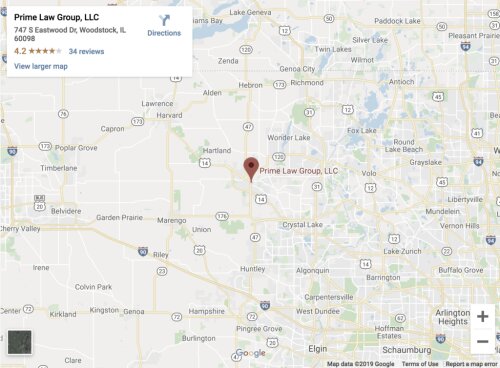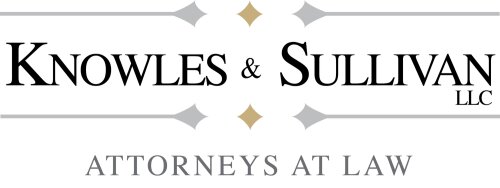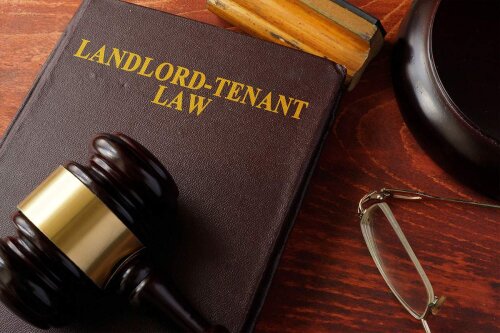Best Mortgage Lawyers in Alabama
Share your needs with us, get contacted by law firms.
Free. Takes 2 min.
Free Guide to Hiring a Real Estate Lawyer
Or refine your search by selecting a city:
List of the best lawyers in Alabama, United States
About Mortgage Law in Alabama, United States
Mortgage law in Alabama governs the process by which individuals and businesses purchase real estate using borrowed funds secured by the property itself. In Alabama, like in most states, a mortgage is a legal agreement where the borrower pledges real property as collateral for a loan from a lender. If the borrower fails to meet the loan obligations, the lender can initiate foreclosure proceedings to reclaim the property. Alabama's laws detail the rights and responsibilities of both lenders and borrowers, covering everything from loan origination and disclosure requirements to foreclosure procedures and borrower protections. Understanding these laws is critical for anyone buying, selling, or refinancing property in the state.
Why You May Need a Lawyer
Legal issues involving mortgages can be complex and stressful. Common situations where you may require the help of a lawyer include:
- Reviewing and negotiating mortgage loan agreements to ensure fair and clear terms
- Addressing disputes over mortgage payments or interest rates
- Facing foreclosure proceedings or seeking alternatives to foreclosure
- Handling mortgage fraud or misrepresentation cases
- Refinancing an existing mortgage or obtaining a mortgage release
- Resolving disputes over property title or deed transfers
- Navigating short sales, deeds in lieu of foreclosure, or mortgage modifications
Because Alabama laws can be specific and deadlines strict, consulting a knowledgeable attorney can help protect your rights, explain your choices, and guide you through complex paperwork and negotiations.
Local Laws Overview
Several aspects of Alabama law are especially important for anyone dealing with mortgages:
- Foreclosure Process: Alabama is a non-judicial foreclosure state, meaning lenders can foreclose on a property without going to court if the mortgage document contains a power of sale clause. The foreclosure process can move quickly, taking as little as 30 days after official notice is published.
- Right of Redemption: After foreclosure, Alabama homeowners generally have up to one year to redeem the property by paying the full amount owed. This right is subject to certain restrictions and timelines.
- Mortgage vs. Deed of Trust: While both are used in Alabama, mortgages and deeds of trust have differences in how foreclosure is carried out and who acts as trustee in the transaction.
- Deficiency Judgments: Lenders in Alabama can seek a deficiency judgment if the property sells for less than the outstanding balance during foreclosure, unless a waiver is negotiated.
- Consumer Protections: Federal laws, such as the Real Estate Settlement Procedures Act (RESPA) and Truth in Lending Act (TILA), provide disclosures and protections, but local Alabama statutes also affect loan practices so it is important to know both.
Frequently Asked Questions
What is the foreclosure process in Alabama?
In Alabama, most foreclosures are non-judicial, meaning the lender can foreclose without court involvement if the mortgage includes a power of sale. The lender must publish a notice of foreclosure for at least three consecutive weeks before selling the property at a public auction.
Can I stop a foreclosure once it has started?
You may be able to stop a foreclosure by paying the total amount due before the sale (reinstatement) or through negotiation with the lender for loan modification or a repayment plan. Bankruptcy may also temporarily halt foreclosure while the court reviews your situation.
What is the right of redemption in Alabama?
After a foreclosure sale, homeowners in Alabama may be able to reclaim (redeem) their property by paying the full balance plus associated costs within a certain period, typically up to one year from the foreclosure date.
What happens if the foreclosure sale does not cover my loan balance?
If the foreclosure sale does not cover the outstanding mortgage balance, the lender may seek a deficiency judgment for the remaining amount, unless otherwise agreed or prohibited by other factors.
Do both spouses have to sign the mortgage in Alabama?
While Alabama is not a community property state, both spouses should sign the mortgage if the property is or will be jointly owned. This ensures clear title and compliance with lender requirements.
How are mortgage interest rates determined in Alabama?
Interest rates for mortgages are primarily set by lenders based on market conditions, credit scores, loan type, and other factors. Alabama law does not set specific limits but federal and state consumer protection laws require good faith estimates and full disclosure.
What is a deficiency judgment and how does it affect me?
A deficiency judgment allows a lender to collect the difference if a foreclosure sale yields less than what is owed on the mortgage. This judgment can become a lien against your other assets.
Can I refinance my mortgage after foreclosure proceedings have begun?
Refinancing may be possible before foreclosure is finalized, but it depends on your financial situation, creditworthiness, and willingness of lenders. Acting quickly is essential if you want to pursue this option.
Is Alabama a judicial or non-judicial foreclosure state?
Alabama primarily uses non-judicial foreclosure proceedings, which means lenders do not need a court order if the mortgage document contains a power of sale clause. Some judicial foreclosures do occur, but they are less common.
What can I do if I suspect mortgage fraud or predatory lending?
If you believe you are a victim of mortgage fraud or predatory lending practices, you should consult a qualified attorney immediately and consider filing a complaint with state and federal consumer protection agencies.
Additional Resources
For more information or support regarding mortgages in Alabama, consider reaching out to the following organizations and agencies:
- Alabama Department of Banking - Regulates mortgage lenders and brokers in the state
- Alabama State Bar Association - Provides lawyer referral services and consumer legal information
- U.S. Department of Housing and Urban Development (HUD) - Offers housing counseling and mortgage assistance programs
- Legal Services Alabama - Provides free or low-cost legal help to qualifying individuals
- Consumer Financial Protection Bureau (CFPB) - Offers consumer guides and a complaint process for mortgage issues
Next Steps
If you need legal assistance with any matter related to mortgages in Alabama, here is how to proceed:
- Gather all documents related to your mortgage, including the note, deed, payment records, and any correspondence from your lender.
- Consult with a qualified Alabama mortgage attorney who can review your situation and explain your legal options.
- Know your deadlines. Foreclosure and other mortgage actions in Alabama have strict timeframes - act quickly to protect your rights.
- Reach out to nonprofit or government agencies if you need financial counseling or assistance finding legal representation.
- Stay informed about your rights and responsibilities by reviewing resources provided by state and federal agencies.
Facing mortgage issues can feel overwhelming, but understanding Alabama laws and getting informed legal advice can help you take confident steps toward resolving your situation.
Lawzana helps you find the best lawyers and law firms in Alabama through a curated and pre-screened list of qualified legal professionals. Our platform offers rankings and detailed profiles of attorneys and law firms, allowing you to compare based on practice areas, including Mortgage, experience, and client feedback.
Each profile includes a description of the firm's areas of practice, client reviews, team members and partners, year of establishment, spoken languages, office locations, contact information, social media presence, and any published articles or resources. Most firms on our platform speak English and are experienced in both local and international legal matters.
Get a quote from top-rated law firms in Alabama, United States — quickly, securely, and without unnecessary hassle.
Disclaimer:
The information provided on this page is for general informational purposes only and does not constitute legal advice. While we strive to ensure the accuracy and relevance of the content, legal information may change over time, and interpretations of the law can vary. You should always consult with a qualified legal professional for advice specific to your situation.
We disclaim all liability for actions taken or not taken based on the content of this page. If you believe any information is incorrect or outdated, please contact us, and we will review and update it where appropriate.
Browse mortgage law firms by city in Alabama
Refine your search by selecting a city.














